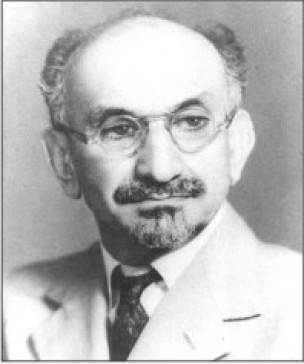J.F. Dastur

| Name | J.F. Dastur |
| Designation | President |
| Complete postal Address with city code | Indian Phytopathological Society |
| Email IDs | xyz@gmail.com |
| Mobile No. | 123456789 |
Brief Biodata
It is difficult to believe that Prof. J. F. Dastur is no more. He was with us, quite active and agile for his age, though not as much so as we were accustomed to see him before, at the Second International Symposium held in New Delhi in January this year. When we parted company, could never imagine that was the last I was seeing of the grand noble man who was so much part and parcel of plant pathological science in India. A doyen amongst plant pathologists, Prof. Dastur left for his heavenly abode on 11th May 1971 at his home in Bombay.
Prof. Dastur was born on September 10, 1886 at Bhavnagar. He graduated from Bombay University in 1909 and in the following year he entered Government service as First Assistant to the Imperial Mycologist (Dr. E. J. Butler) at Agricultural Research Institute, Pusa (Bihar). He received world-wide recognition in 1913 on his monumental work in the discovery of a new disease of the castor oil plant caused by a new species of Phytophthora and named by him, P. parasitica. In recognition of his ability as a plant pathologist he was promoted to the Imperial Agricultural Service in 1919, which was a rare distinction for an Indian in those days. Since 1923 till his retirement from Government service in 1941, Prof. Dastur did creditable work as Mycologist to Central Provinces (now Madhya Pradesh) and made valuable contributions on cotton wilt, foot rot of betel, ripe rot of banana, stem breaking of cotton. pink disease of citrus, anthracnose and Neniatospora on cotton, black thread of Hevea. etc. A large number of junior colleagues and students received his sympathetic and inspiring guidance and he built up a strong school of mycological and plant pathological research at Nagpur where he remained for the major part of his scientific career.
After retirement from Central Provinces. Prof. Dastur came to the Imperial Agricultural Research Institute, New Delhi, to Head the Division of Mycology and Plant Pathology at the request of the Government of India. During his short stay of two years at the Institute, the Division's activities by way of research, as well as Post-graduate teaching were greatly expanded due to his initiative and guidance. His interest in the subject did not vane on his retirement from Indian Agricultural Research Institute in 1947. At his home town Bombay he acted as scientific advisor to several firms and manufacturers of pesticides and wrote books on medicinal plants of India. Besides four books and departmental leaflets and bulletins, Prof. Dastur has published over 36 original papers and memoirs which are regarded as distinct contributions to our knowledge by world authorities. His work is widely quoted in international papers, particularly the one related to Phytophthora parasitica.
Prof. Dastur was held in high esteem by his
colleagues, subordinates and students for his knowledge of mycology and plant
pathology, and his sympathetic attitude towards their difficulties and
aspirations. Fellow of the National Academy of Sciences of India and founder
member of Indian Phytopathological Society, he was elected First President of
the latter, delivered the First Mundkur Memorial Lecture and received a scroll
of honour as the First President of the Society from President of the Royal
Dutch Agricultural Society and Secretary General, at the Silver Jubilee Session
of Indian Phytopathological Society.